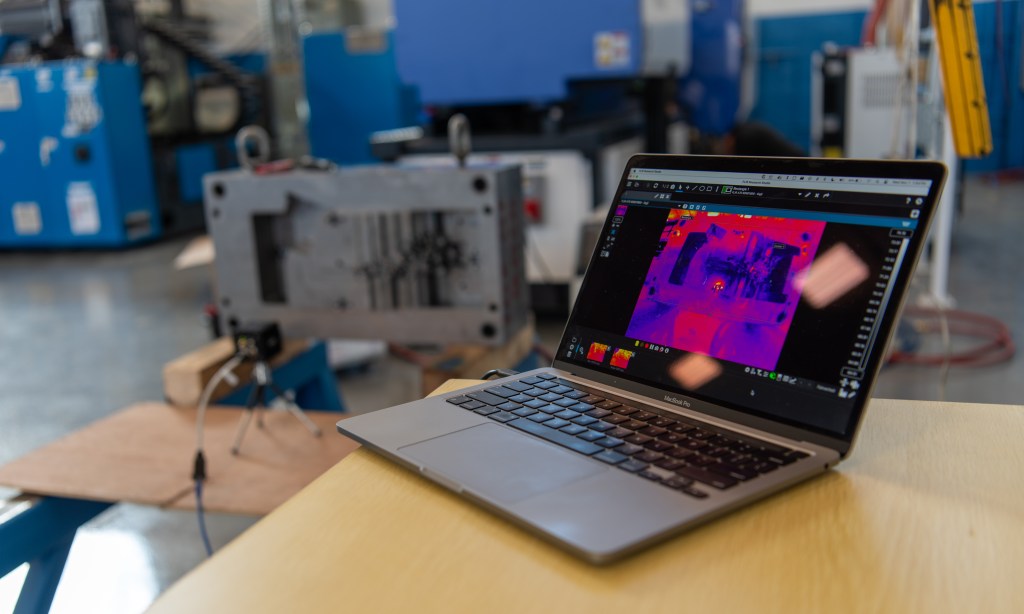In 2014, investor and entrepreneur Peter Thiel infamously posed the distinction between companies that deal in “atoms” versus those that deal in “bits.” In its crudest terms, the former category includes businesses focused on things like hardware and manufacturing; the latter, software and financial services. Just shy of 10 years on, the distinction now strikes as quaint, if not downright irrelevant.
Over the past five or so years, a new cohort of startups have emerged. In some ways, they resemble Silicon Valley of the 1950s rather than the 2010s: Eschewing Thiel’s distinction altogether, they broadly view bits and atoms as essentially inextricable, two hammers to strike the same nail. Few startups better embody this new paradigm than Atomic Industries.
Four-year-old Atomic is attempting to automate tool and die making, a critical step in manufacturing a wide swath of consumer and industrial products, from paper clips to aircraft components. The project is ambitious to the extreme — some injection molds are enormously complex, with tool and die makers functioning almost as alchemists transforming lead into gold. In addition, each product is unique, and requires the exact kind of generalizable intelligence humans have perfected over thousands of years of evolution.
But tool and die making is rigidly constrained by the geometry of the customer’s product: In this way, it’s alchemy that’s well-suited for machine-led, physics-based problem solving. Just as tool and die markers earn their stripes over a multi-year timespan, Atomic is designing an AI software stack that can become an ultra-efficient design engine for tools and molds, almost like a translation layer between what the customer wants to manufacture and the tool that will manufacture it.
“In my estimation, the world of atoms is worth 100x more than the world of bits as an industrial (and soon to be space-faring) society,” Atomic CEO and co-founder Aaron Slodov said. “It’s also orders of magnitude more difficult and expensive to innovate in. We’re starting to see how some of the most valuable companies on Earth are being valued so highly for their intersection of tech and atoms. Pushing the world of atoms towards the same pace as the world of bits is crucial.”
“AI in the world of atoms”
At its core, Atomic’s applied AI software stack is analogous to training a human. Imagine a fresh apprentice. “You start off and you’re basically a liability,” Slodov said. But over time, that apprentice goes from liability to asset; from student to teacher. But the issue is that humans, even well learned, are rarely 100% accurate in their estimations.
Atomic, founded in 2019 by Slodov, Austin Bishop and Lou Young Jr., wants to build something better. To start, the company is beginning with single areas of die design that can be rigorously tested against industry standard simulation tools. In addition, the startup is essentially working with products that are in a latter stage in design — the Design for Manufacturability (DFM) process is essentially complete. (The ultimate goal is to move upstream and work directly with the product designers, who could get near real-time feedback on their product design.)
The software competes internally against human teams, and the company is collecting every bit of data from the factory floor to compare the tool against what the customer wanted. Eventually, Atomic wants to build an AI that can generalize the problem: “One day, it will learn how to optimize each design in terms of cost, complexity to fabricate, lead time and performance — just like the best tool and die makers on Earth now,” Slodov said.
Oh you want to save America by exascaling the industrial base with AI-powered factories? cool me too
— Aaron Slodov (@aphysicist) August 29, 2023
Investors — particularly those focusing on hard tech and the VC arms of major automakers — are taking notice. The company has closed a $17 million seed round led by Narya, and co-led by 8090 Industries and Acequia Capital New Industrials, with additional participation from Porsche Ventures, Yamaha Motor Ventures, Toyota Ventures and Impatient Ventures, and supported by Phaedrus, SaxeCap, Zack Nathan, Tyler Knight and the CWRU Alumni Fund. Narya partner Falon Donohue is joining Atomic’s board.
The new funding comes a little over 18 months after the company raised a $3.2 million pre-seed. (Atomic was also part of Y Combinator’s W21 cohort.) With the new funding, Atomic has established a state-of-the-art testbed facility in Detroit to build out AI manufacturing capabilities.
While the Midwest is not exactly the sexiest region for startups, as Slodov put it, “the best talent for tool making is the Midwest, [and] we are leaning in heavily to this DNA.”
Beyond the new square footage, Atomic will use the money to increase headcount in software, operations and manufacturing — and to build a supercomputer. The startup does so much high-performance computing and machine learning compute that it’s actually cheaper to build in-house than outsource to services like AWS, Slodov explained.
Atomic’s plans are focused on the specific, high-skill trade of tool and die making. But conceptually, the startup is looking to accelerate a new future for America’s industrial base. The risk is huge, but the payoff would likely be even bigger.
“Imagine factory workers that have productivity multipliers like software engineers (and get comped as much too),” Slodov said. “So we throw tech at it, max out human productivity, and create a new industrial base that can catapult us into the future.”
“Imagine being able to spin up factories that could mass produce anything, at a fraction of speed and cost. What would you build? Where would you build?”































Comment